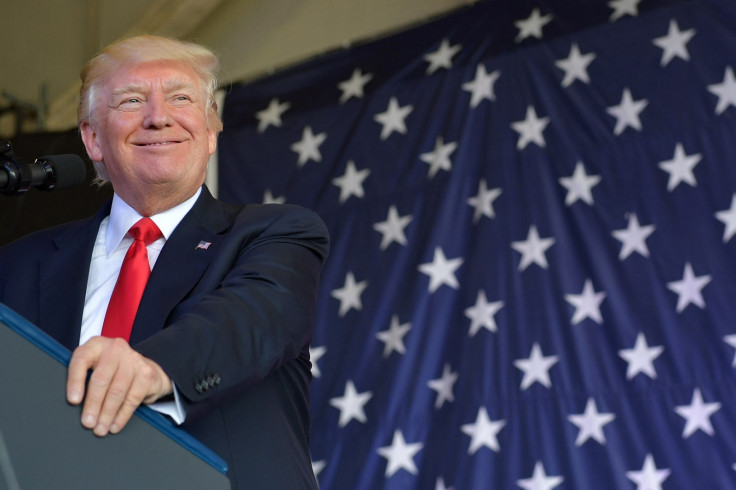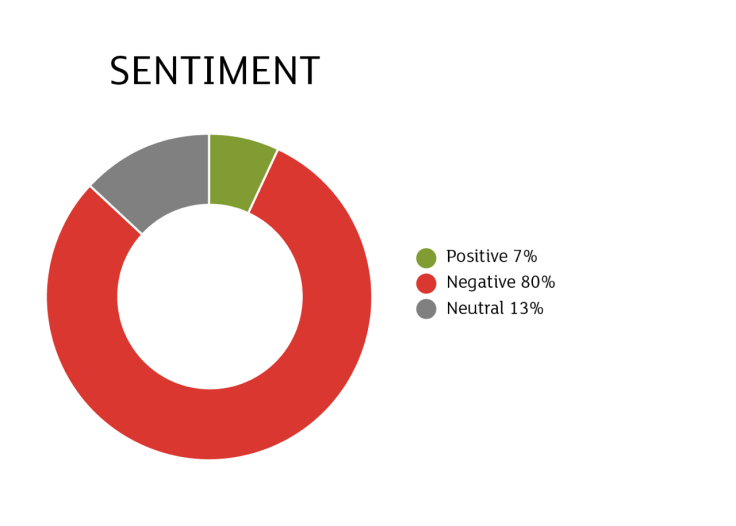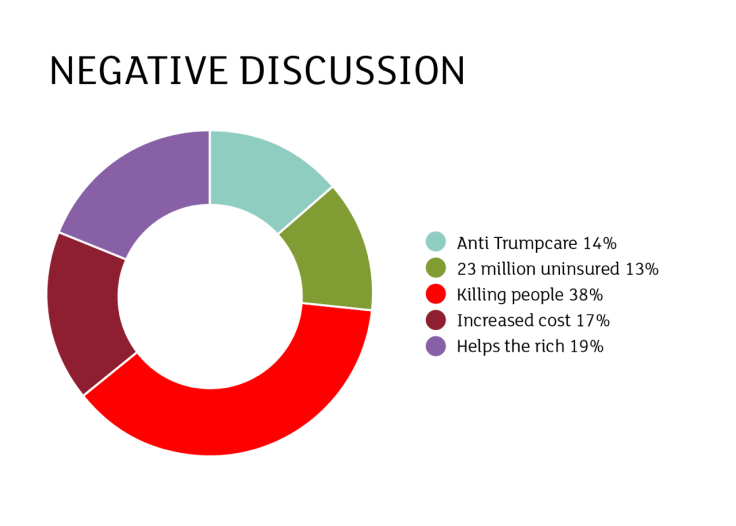Trump's scandals won't bring him down – his healthcare policy will
Donald Trump's supporters will be among those hit hardest by the Trumpcare health reforms.

From the outside, Donald Trump's presidency looks a little bumpy. The announcement that he's withdrawing the US from the Paris climate agreement will hardly help him win any International Man of the Year awards.
His complex entanglement with Russia isn't likely to earn him an invitation to the FBI Christmas party, while his tone-deaf response to terrorist attacks in the UK seem certain to reward him with a 'lively' welcome should he ever get the golden carriage parade to Buckingham Palace that he seems to crave.
Looking at those, and the never-ending gift that is his Twitter account, you would imagine that the presidency is notable for the smell of burning. The whole administration has already taken on a Nero-like quality.
Yet, look at the opinion polls numbers and Trump's approval ratings are not that bad. An administration that seems to juggle the twin virtues of incompetence and corruption, yet here he is with an approval rating just under 40%. That's not so bad. You start to wonder what he has to do to get really unpopular. It's not as if his existing list of misdemeanours is short.
Yet still Trump goes on, able to comfort himself that the 'fake news' media is sniping at him, but the wounds aren't mortal and his support is still stronger and more sizeable than the rest of the Washington bubble can quite fathom. But don't expect that to last.
Social media data has often been ahead of polling data in watching the patterns of Trump's candidacy and presidency. And that data shows a ticking timebomb. The big surprise is that the damage won't (necessarily) come from his Twitter account or the Russian investigation. It's much more mundane and 'normal' than that. It's healthcare.
Of course, Obamacare was the signature legislation of his predecessor and reforming it was a key part of Trump's campaign. The need for the replacement of this expensive wishy-washy liberalism was repeated time and again in the campaign by Trump. It would be among the first executive orders he signed.
Safe to say, it's not going according to plan. Unless the plan was a Death Plan.
The first attempt to reform in March died rather quickly, like many Americans soon will. The legislation collapsed at the first significant hurdle. While Trump blamed Democrats, voters lashed out more widely, but what was remarkable then was that there were signs of Trump actually getting away with it.
Social media data at the time from the analysis company Impact Social showed 42% of posts and comments around Trumpcare to be negative. But the good sign for Trump then was how varied the criticism was. He didn't take all the flak. Only 13% of the negative posts then directly blamed him, and, for a man who proclaims himself a deal-maker, that's getting away with it. A further 16% of posts were just anti-Trump, but compared to other data, that was pretty good too. He'd already seen worse.
Back then, it was Paul Ryan, speaker of the House of Representatives, who would be more alarmed: 6% blame him directly for the failure to make a deal with the rebel Republicans, who effectively scuppered the legislation, while a further 8% blamed him for his defeatist attitude. Only 5% of the negative posts actually blamed the Republican party, while 7% nailed it as "political reality".
That was March. Right now, as the GOP nervously tries to second guess what to do in the next iteration of the bill, and as the Congressional Budget Office asserts that the current version of the bill will leave 23 million Americans without any healthcare, the social media numbers are looking serious for Trump.
Impact Social's re-measurement of online posts and comments on social media platforms in the last two weeks of May show a much, much worse position for Trump. It's proving to be a situation where everyone has opinions (only 13% of posts are neutral). And, from Trump's point of view those opinions are bad. Really bad: eighty-percent of voters are negative about Trumpcare (a tiny 7% positive).

That's 80% of voters for a new president on a signature policy that he set at the forefront of the whole campaign. In short, politically, it's the very definition of tits up.
Delving deeper into those negative numbers doesn't help much. Thirty-eight percent say the bill is "killing people". That's a pretty blunt assessment of a healthcare bill. A combined 40% centre on the increased cost of healthcare for those who have it - and on the 23 million who don't. And nearly 20% have noticed how the tax cuts that bring this about help the rich.

These are seriously bad numbers which will worry even Trump and will worry the Republican party even more. In the social conversations, Ryan gets it in the neck most, but there's another 20 Republican Senators who are named and shamed. Those people will start to fear for their careers if they are left to carry the can.
Indeed, the entire party is being openly 'shamed' for the policy, with many referencing healthcare in the state of Iowa, where Obamacare struggled to offer support and where Trump's replacement is expected to be even more threadbare.
There's a growing sense of resistance in all this online chatter. Of a growing activism, centred on an awareness that it is Trump's support who will be mostly undermined by all this. It's not yet an organised activism, but there are signs of real danger for the Trump administration.
Healthcare cannot be brushed aside as a conspiracy theory like Russia, or a "foreign policy" issue like terrorism, or simply "fake news" like almost everything else. Americans, especially Trump's Americans, will be directly and often painfully affected by this. They will see the difference The Donald has made, and there's a very good chance they won't like it. They already don't.
The health of millions of Americans could be put in jeopardy by this new bill. The health of the administration could face much the same fate.
Jimmy Leach is a digital consultant, working on platforms and communications for governments, corporations and start-ups.
© Copyright IBTimes 2025. All rights reserved.






















